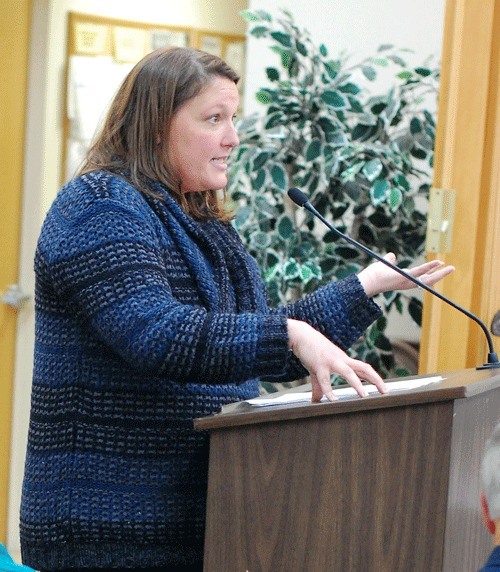Over the objections of one city councilman, Oak Harbor is once again refusing to increase the amount it pays for tourism promotion in Island County — at least for now.
The city council recently approved a handful of clean-up amendments meant to formalize operating procedures for the Island County Joint Tourism Board, the body that decides how and where money levied from lodging industry businesses across Island County is spent each year.
Although none of the amendments proposed to increase Oak Harbor’s contribution, the hot-button issue once again raised its ugly head when members of the public took to the microphone Tuesday to warn the city council away from the mere notion of giving more.
Oak Harbor Chamber of Commerce Executive Director Jill Johnson said representation on the 18-member board, which was a factor in the city’s first decision to reduce its annual contribution, is still unequal. She passed out a breakdown of membership by region.
“South Whidbey, and this is where things get interesting, has three,” Johnson said.
They represent the Langley, Freeland and Clinton chambers of commerce but the area has two other members as well. They include one elected official and one representative of unincorporated South Whidbey for a total of five.
By comparison, Oak Harbor and North Whidbey have a total of three members: one from the city’s chamber, one from unincorporated Island County and one elected city official. Representation, and most especially how the money is spent, has been a contentious issue for Oak Harbor.
First established in 2000, the lodging tax empowered the four entities to impose a 2 percent tax on all lodging industry businesses. While the intent was to pool the money for joint tourism promotion, Langley had a previous commitment and therefore only contributed 1 percent.
In recent years, however, city officials grew disgruntled over Oak Harbor’s annual contribution, which far outweighed those of Coupeville and Langley. Coupled with gripes that the money was being spent on advertising campaigns that seemed to focus on the smaller communities, the city council decided to reduce the annual payment to 1 percent.
In 2009, it was suggested that the money may be better spent on city functions and the city council agreed to reduce its contribution further to just $20,000 a year.
In 2010, the lodging tax in Oak Harbor garnered $93,690. By comparison, $122,256 was collected in rural Island County, $23,030 in Coupeville and $45,299 in Langley.
In a later interview, Johnson said she didn’t mean to be too critical of South Whidbey and noted that many positive changes have happened on the tourism board. Her intent, she said, was to convey to the city council that the city’s representation and influence will not increase with a larger annual contribution. Oak Harbor will still have an unequal voice about how the money is spent, she said.
During Tuesday’s meeting, City Councilman Jim Campbell said he disagreed with Johnson and believes the problems that spurred the first two reductions have since been solved. He is the city’s representative on the tourism board and argued that Oak Harbor is now getting its fair share of promotion.
“Now that we are we should go back to 1 percent like everyone else,” Campbell said.
Based on the amount collected in 2010, 1 percent tabs out to about $46,850. Although Campbell found little support among his colleagues to change the amount immediately, there was some receptivity to his request to rehash the issue again next year.
Although it was agreed that the city’s annual contribution would be talked about again at the city council’s second meeting in January, Campbell said later that he’s not holding out much hope that his arguments will hold sway.



